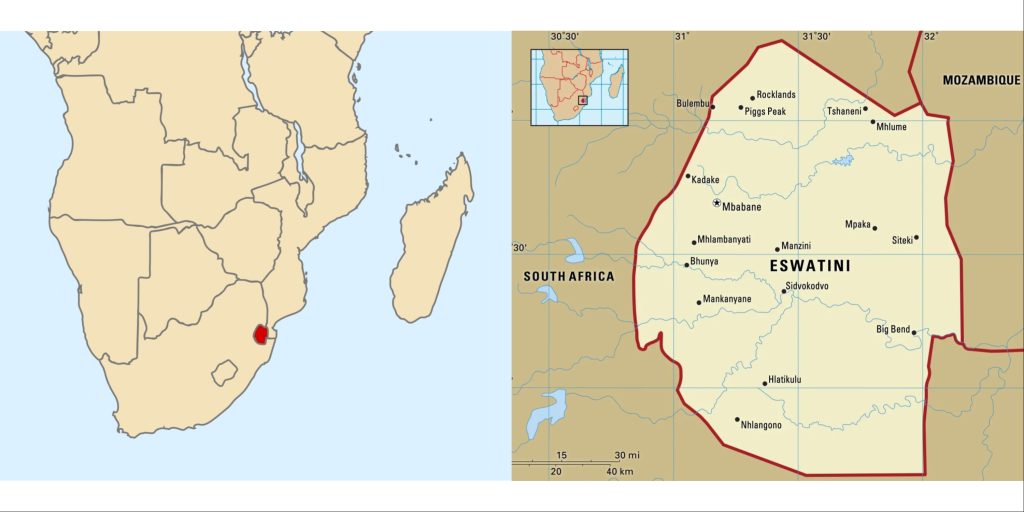United States has sent five immigrants it says were convicted of serious crimes to the African nation of Eswatini, the US Department of Homeland Security said — an expansion of the Trump administration’s largely secretive third-country deportation programme.
In a late-night post on X Tuesday, Homeland Security Assistant Secretary Tricia McLaughlin said five men — citizens of Vietnam, Jamaica, Cuba, Yemen and Laos — had been deported to Eswatini formerly known as Swaziland, reports AP. She said they were all convicted criminals and “individuals so uniquely barbaric that their home countries refused to take them back.”
The men “have been terrorising American communities” but were now “off of American soil,” McLaughlin added. She said they had been convicted of crimes including murder and child rape and one was a “confirmed” gang member. Her social media posts included mug shots of the men and what she said were their criminal records and sentences. They were not named.
The Eswatini government said Wednesday the men, which it referred to as “prisoners” and “inmates,” were being held in isolated units in unnamed correctional facilities in Eswatini but were considered to be in transit and would ultimately be sent back to their home countries.
In a series of posts on X, the Eswatini government said it would collaborate with the US and the UN migration agency to facilitate their return home and ensure “due process and respect for human rights is followed” as part of their repatriation. The government gave no timeframe for that to happen.
Four of the five countries where the men are from have historically been resistant to taking back some citizens when they are deported from the United States. That issue has been a recurring problem for Homeland Security even before the Trump administration. Some countries refuse to take back any of their citizens, while others will not accept people who have committed crimes in the United States.
A July 9 memo to US Immigration and Customs Enforcement staff lays out the agency’s policy governing when and how ICE can send someone with a final order of removal to a “third country.”
If the US has received assurances that the State Department deems credible from the third country that people the US sends there will not be tortured, ICE can send them without any further procedures.

If the US has not received those assurances, ICE can still send the person there but first has to notify them, in a language the person understands, telling them where they are going. Time between notice and deportation is generally 24 hours, but can be as little as six hours.
The US has already deported eight men to another African country, South Sudan, after the Supreme Court lifted restrictions on sending people to countries where they have no ties. The South Sudanese government has declined to say where those men, also described as violent criminals, are after it took custody of them nearly two weeks ago.
Eswatini, previously called Swaziland, is a country of about 1.2 million people between South Africa and Mozambique. It is one of the world’s last remaining absolute monarchies and the last in Africa. King Mswati III has ruled by decree since 1986. Political parties are effectively banned and pro-democracy groups have said for years that Mswati III has crushed political dissent, sometimes violently.
Pro-democracy protests erupted in Eswatini in 2021, when dozens were killed, allegedly by security forces. Eswatini authorities have been accused of conducting political assassinations of pro-democracy activists and imprisoning others.
As with South Sudan, rights groups criticised the Trump administration’s choice to send the deportees to Eswatini, given its record.
The Trump administration has said it is seeking more deals with African nations to take deportees from the United States. Leaders from some of the five West African nations who met last week with President Donald Trump at the White House said the issue of migration and their countries possibly taking deportees from the US was discussed.


